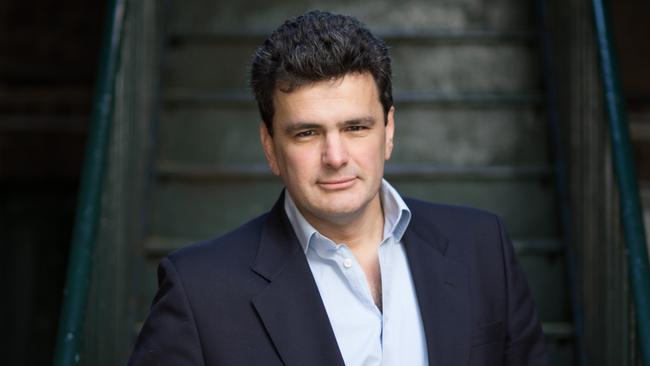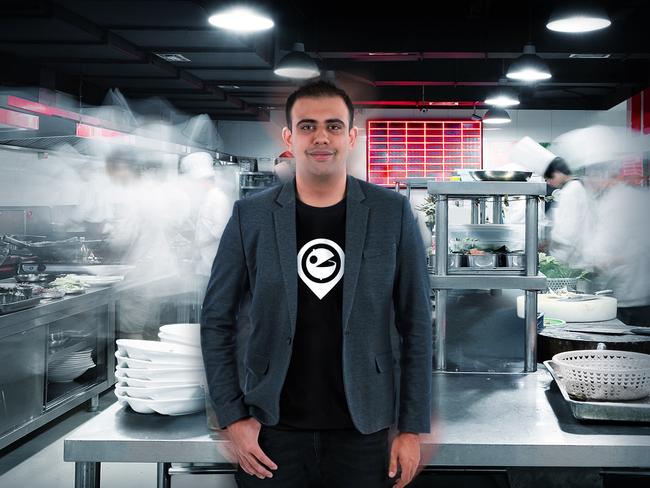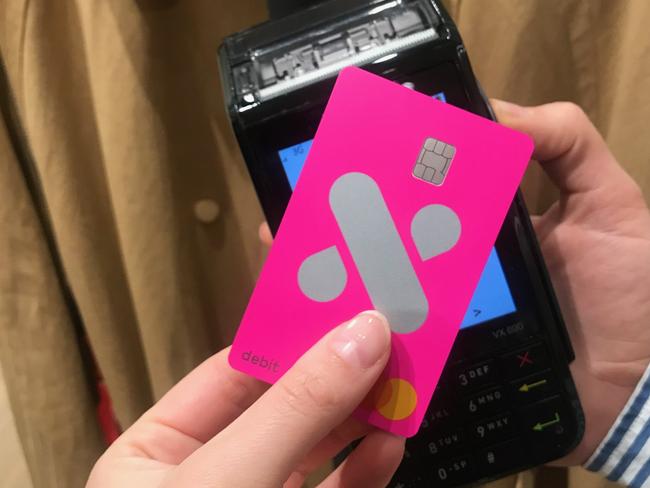Xinja hands back banking licence
The neobank has blamed COVID and a difficult capital raising environment for its demise.

Hello and welcome to The Download, The Australian’s technology blog for the latest tech news.
David Swan 1.40pm: Grabox launches ‘delivery-only’ brand network
Sydney-based international marketplace platform Grabox is expanding its core offering in the food delivery service with the launch of Grabox Kitchens, following exponential growth during the COVID-19 pandemic.
The start-up, which operates across Australia, New Zealand, India and the United Kingdom, works with brands like Coca-Cola, Unilever and Red Bull to improve their sales through targeted food samples sent via food delivery platforms.
The company is now launching Grabox Kitchens, according to founder Dhruv Kohli, who said that inspired by the pandemic, the offering aims to get commercial kitchens cooking again while creating new menu options for hungry stay-at-home diners.

Grabox will deploy advanced analytics, AI and machine-learning to create virtual ‘delivery-only brands’ and reignite commercial kitchens.
Customers can put in orders to these brands using online delivery platforms including UberEats, Deliveroo, Menulog and Doordash, Mr Kohli said, and these are then fulfilled by local businesses using their spare kitchen capacity.
“Grabox Kitchens is launching in Australia to provide a unique solution for the hospitality sector to reach its full potential in the food-delivery market. 2020 has been a challenging year for everyone in the commercial food industry - for those who were mostly delivery-focused, the struggle has been to stand out and scale to the challenge of rising demand and competition. For others who rely on dine-in customers, it has been a struggle even just to survive,” Mr Kohli said.
“Lockdowns and social distancing measures have greatly cut the number of orders they can fulfill, leading to thousands of empty or underutilised kitchens. Additionally, a vast majority of local restaurants find it challenging to thrive on these food delivery platforms due to a lack of technical knowledge, marketing know-how and creative approaches to menu items.”
He added that Grabox kitchens has launched its first brand, Wattaburrger this month, with six additional brands in the pipeline for early 2021.
Chris Griffith 10.40am: Google to track animals in bushfire zones
Google says it is installing more than 600 cameras in bushfire zones across Australia to track the recovery of animals impacted by last summer’s fires.
The cameras will be installed in areas including the Blue Mountains, East Gippsland, Kangaroo Island, and South East Queensland and artificial intelligence will be used to identify species. Google is partnering with WWF-Australia and Conservation International and says it has made available a $US1m ($1.32m) grant from Google’s philanthropic arm, Google.org.
Nearly three billion native animals were in the path of the fires and 119 threatened species were identified as needing urgent intervention, Google says in a statement.
It says the first cameras have been installed on Kangaroo Island – where fires consumed half of the island – to monitor species like the critically endangered Kangaroo Island dunnart. “More than 90 per cent of the dunnart’s habitat was scorched in the fires, but there are signs of hope with the new cameras already capturing an image of the mouse-sized marsupial in Flinders Chase National Park.”
Tanya Birch, program manager, Google Earth Outreach, says by harnessing Google’s AI technology, the Wildlife Insights projects will help biologists automatically identify and share sensor camera images. “On average, human experts can label 300 to 1,000 images per hour. With the help of Google AI Platform Predictions, Wildlife Insights can classify the same images up to 3,000 times faster, analysing 3.6 million photos an hour.”
However the project needs your help, as its AI technology has not been used before with Australian wildlife. WWF-Australia spokesman Darren Grover says like humans, AI models get better at recognising and identifying animals if they can look at hundreds or thousands of images.
Google says Wildlife Insights has been trained to identify more than 700 species, but this is the first time the platform will be tested on Australia’s wildlife.
“Anyone with sensor camera images of native wildlife, especially in bushfire regions, is encouraged to share their pictures to speed up the teaching process.”
David Swan 9.05am: Australia ready for ‘COVID safe’ hospitality
Xinja will hand back its banking licence and remove its transaction and savings products, with the neo-bank blaming the COVID-19 pandemic and a difficult capital raising environment for its decision to cease being a bank.
A company spokesman said Xinja was already returning customers’ deposits, and will instead focus on its US share trading product.
“After a year marked by COVID-19 and an increasingly difficult capital-raising environment, and following a review of the market in Australia, Xinja has decided to withdraw the bank account and Stash (savings) account and cease being a bank,“ the spokesman said.
“This was an incredibly hard decision.
“We hope to refocus the business in other areas such as our US share trading product, Dabble, should circumstances allow.”
He added APRA is closely monitoring Xinja’s return of deposits to ensure that funds are returned in an orderly and timely manner, and customers are being given the required 7-day notice before their accounts are closed. Customers should transfer their money elsewhere as soon as possible, he said.

Xinja had $413m in retail deposits on its balance sheet at the end of October, according to APRA figures. The bank had written no loans, the figures show.
Xinja posted a loss of $35.8m for the year to end-June, according to its most recent annual report. This had deepened from a $21m loss a year earlier. The bank also had negative cash outflows of $38m for the financial 2020 year and net assets of $25m.
A note in the accounts from Xinja’s auditors PwC said there was a “material uncertainty” that may cast “significant doubt on the group’s ability to continue as a going concern”.
PwC noted Xinja was “highly dependent on raising additional capital to fund its continuing development activities while maintaining sufficient levels of capital above the minimum prudential capital requirements.”
In the company‘s most recent annual report, Mr Wilson lamented the ’sad reality of a lack of investment capital’ which meant the company had to cut both expenses and product development plans.
“We have managed to keep going with most of our planned products and services with skeleton staff, but their delivery has been slowed. This has been particularly noticeable with our lending products which require a significant amount of infrastructure and our inability to release some key hygiene features for the Bank Account. Put simply, if the money isn‘t there, we can’t pay a team to build it.”
He added that ‘frustratingly, a lack of capital for start-ups means the incumbents get a further advantage over the new independents’.
“On top of this the regulatory costs on Xinja are significant and material. In an environment of sparse capital, these costs are fixed or growing and consume an ever-larger percentage of available funds.”
Xinja was one of a throng of trendy neobanks, including Up and 86400, taking on the big four’s millennial customers with mobile apps and competitive interest rates. Critics however have claimed the new crop of entrants don’t have enough product differentiation to lure customers away from the big four.
In October Xinja shut off its public road map, with co-founder Camilla Cooke blamed a shifting of business priorities and a lack of development resources for failing to meet its targets.
“We don’t want to go on setting expectations that we might not meet,“ Cooke said.
“Circumstances and direction can change. We want to keep some information to ourselves for competitive reasons.
“You have to adapt to the market conditions you’re in. It’s the nature of a start-up.”
Xinja received its banking licence from APRA last September.
The company raised $433m from Dubai-based World Investments for a 40 per cent stake in March, but in May the company blamed UAE regulators and COVID for a delay in receiving the investment.



To join the conversation, please log in. Don't have an account? Register
Join the conversation, you are commenting as Logout